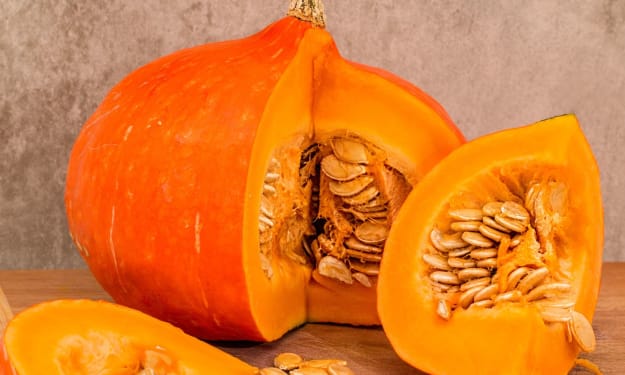Empty Stomach Coffee Dilemma: What You Need to Know
Essential Insights for Coffee Lovers

For some individuals, enjoying a newly blended cup of coffee first thing is a nonnegotiable method for beginning the day. However, the possibility that tasting without food could hurt your stomach — or add to ills like bloating, skin acne, hair loss, anxiety, thyroid issues, or painful periods, as a few via web-based entertainment have guaranteed — has gathered as much fame as incredulity.
Specialists have been examining the benefits and harms of drinking coffee, particularly as it connects with the stomach, since the 1970s, said Kim Barrett, a professor of physiology and membrane biology at the University of California, Davis School of Medicine, and a member of the American Gastroenterological Association. Luckily, the stomach can endure a wide range of irritants, including coffee
.
"The stomach has such countless ways of safeguarding itself," Dr. Barrett said. For instance, it secretes a thick bodily fluid layer that makes a strong safeguard between the stomach lining and anything you ingest. That shields the stomach from its regular acidic environment expected to separate food, she explained.
You'd need to consume a very harsh substance "for the protection of the stomach to be penetrated because it's continually in an extremely adverse and damaging environment," she said. "That is exactly how the stomach takes care of its job."
How does coffee affect the gut?
Irritants like liquor, cigarettes, and nonsteroidal anti-inflammatory drugs — like ibuprofen (Advil, Motrin) or naproxen (Aleve) — are known to alter our stomach's normal defense mechanism and harm its lining, said Dr. Byron Cryer, chief of internal medicine at Baylor University Medical Center in Dallas.
His research lab has practical experience in understanding how various drugs and different chemicals can hurt the stomach and small intestine. While specific irritations can make the stomach more vulnerable to acid and ulcer development, multiple studies have found that this isn't true with coffee. A study of more than 8,000 individuals living in Japan, for instance, found no significant association between coffee consumption and ulcer formation in the stomach or intestine — even among the people who drank at least three cups each day.
"Coffee, even in a concentrated form, isn't probably going to cause objective injury to the stomach," Dr. Cryer said. "Furthermore, considerably less at the ordinary doses in common drinks."
Regardless, coffee significantly affects the gut — it can accelerate the colon and induce bowel movement, and coffee increases acid production in the stomach.
Beyond the stomach, the caffeine from espresso is well known to increase heart rate and blood pressure. Also, if you drink it excessively near sleep time, it can disrupt your sleep. Yet, these changes are temporary, Dr. Cryer said.
Will increases stomach acid create any issues?
Drinking coffee on an empty stomach is probably not going to harm your stomach, however, it could hypothetically provoke heartburn, Dr. Barrett said.
We know that coffee sets off stomach acid production, yet assuming that you have food in your stomach, or on the other hand assuming you drink your coffee with milk or creamer, that will support creating a buffer that aids with neutralizing that acid. So drinking coffee, particularly on the off chance that it's dark, without a meal can lessen the stomach's pH more than it would assume that you drank it with milk or with a meal, Dr. Barrett said.
Although a marginally lower pH is no problem for your stomach lining, it could pose an issue for the covering of your esophagus since it is more vulnerable to damage from acid. Besides, a couple of studies have shown the way that coffee can relax and open the sphincter that connects the esophagus to the stomach, which speculatively could permit acid from the stomach to all the more effectively splash up into the esophagus and cause terrible heartburn symptoms.
However, even there, the data is mixed. A survey of 15 studies across Europe, Asia, and the US tracked down no connection between coffee consumption and heartburn symptoms, while, conversely, a recent study using data from more than 48,000 female nurses found a higher risk of heartburn symptoms among coffee drinkers.
To understand how coffee might affect the esophagus, researchers also study a condition called Barrett's esophagus, which occurs when the esophagus is damaged from chronic exposure to stomach acid, for example, in individuals with longstanding acid reflux issues. With this condition, the cells lining the esophagus morph into hardier, stomach-like cells to protect themselves from the acids. These changes can increase the risk of esophageal cancer, particularly if you have a family background of the condition or on the other hand assume that you smoke. Yet, reassuringly, a study of veterans in the US tracked down no comparable relationship with coffee consumption. The authors concluded that for Barrett's esophagus, avoiding coffee would most likely not be helpful.
So how would it be a good idea for me to respond?
All things being equal, as a gastroenterologist, I usually advise my patients to observe their symptoms. If they reliably notice a burning pain in their chest or a sour taste in their mouth after drinking coffee, they might need to cut down — or think about an antacid. Adding a splash of milk or cream or a small bite of food with your morning cup can also help. In any case, if you're not seeing any symptoms, you're most likely somebody who doesn't experience reflux after coffee and can continue to drink it in peace.
Dr. Cryer routinely enjoys his coffee as a latte or cappuccino — the steamed milk cuts down the bitterness, he said. Furthermore, as a general rule, he added, coffee drinking has numerous health benefits, including links to longevity, a lower risk of cardiovascular disease, and protection against many cancers, including liver, prostate, breast, and colorectal cancer.
"There's undeniably more proof for coffee's advantages than disadvantages," Dr. Cryer said — which is something that would be worth remembering, he added, while you look at social media stories that profess the brew's detriments.
About the Creator
shanmuga priya
I am passionate about writing.






Comments
There are no comments for this story
Be the first to respond and start the conversation.